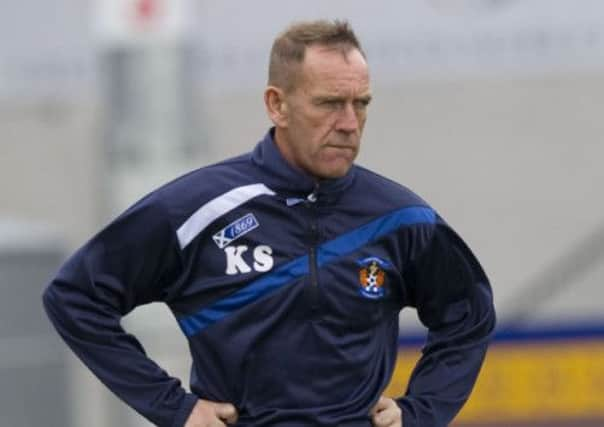Aidan Smith: The man who talked too much


Our chat was constantly interrupted by his phone and, even if he didn’t recognise the number, he’d ask to take the call. It could have been an agent trying to sell him a striker, preferably with physical presence. The calls increased on the journey back from Kilmarnock’s training base at Glasgow University, with one candidate being memorably described to Shiels as “a big unit, a bit Crouchy, not interested in girls, hardly drinks”. It was the transfer window and I got a vivid sense of the mild desperation it induces, on all fronts, and how hard managers with paltry budgets have to work to pull off deals. Shiels must have spent 20 minutes selling his club to a player with limited English who was worried whether his family could settle in the town. But then we all know how much the Northern Irishman likes to talk. Talking got him into trouble. With opposition managers, refs, the hierarchy.
When he talked, for the last time, about Kilmarnock, it was classic Shiels – wordy, blustery, memorable.
Advertisement
Hide AdAdvertisement
Hide Ad“I tried to overprotect the football club and that was my biggest weakness,” he said. “I treated the club like my family and I loved my family. I loved the club, too. I didn’t set out to harm it, but as I tried to protect it from what I felt were injustices, I became a victim of that.”
Now, I’m not close to Rugby Park. I neither support Killie nor report on them. But, from this vantage point, having been entertained by his team and his post-match comments and knowing others were too, it seems that Shiels himself has suffered an injustice. His team played attractive, passing football and won a first-ever League Cup. He spoke up for them whenever he could, the much-maligned SPL as well. Like the ringmaster of a travelling show in his native Ireland, he tried a few huckster-ish tricks to get more folk through the turnstiles. He gave good quote, wasn’t shy, didn’t defer to the Old Firm and chided locals who followed them. Then his son Dean joined Rangers. Later, much later, and, by then, too big a unit, Kris Boyd joined. Killie, who’d lost some of their flair, ultimately lost their top-six place. But they finished last season only two points worse off. What do the chairmen of middle-ranking clubs, unable to keep their best players or cope with too many injuries, expect?
Maybe I’m omitting something from the story of Shiels and Killie. It’s hard to think he missed out anything when we met. He talked about changing fashions in football. “We have to be careful because passing can be boring,” he said. When I remember this comment in tandem with one about the club then sixth from bottom of England’s League Two who had daringly slashed season-ticket prices, I wonder if he was possibly anticipating the rise of Bradford and the demise of Barcelona.
Maybe I’m getting carried away, although I definitely encountered a rounded man, not just a round-ball one. He covered the state of the economy in the town of Kilmarnock: “We’ve lost Johnnie Walker, which was a big blow, and another 206 jobs went last week.” And how driving from Glasgow to the town every time he needed a haircut was the least he could do to help. He covered Ireland, the Troubles, having friends on both sides of “Bandit Country” and the shocking case of mistaken identity with the IRA looking for his brother, a policeman, and instead gunning down one of his other brothers, a baker. And he covered his record collection in muso detail, reckoning that Bob Dylan couldn’t hold a candle to his hero, John Prine.
He even sang his favourite Prine line for me: “From the diamonds in the sidewalk to the dirt in the gutter/And you carry those bruises to reminded you wherever you go.”
Kenny Shiels was bruised by Scottish football, did some bruising himself, and will now be getting his hair trimmed elsewhere. He couldn’t abide football cliches but, in the best sense, he was one: a “character”.